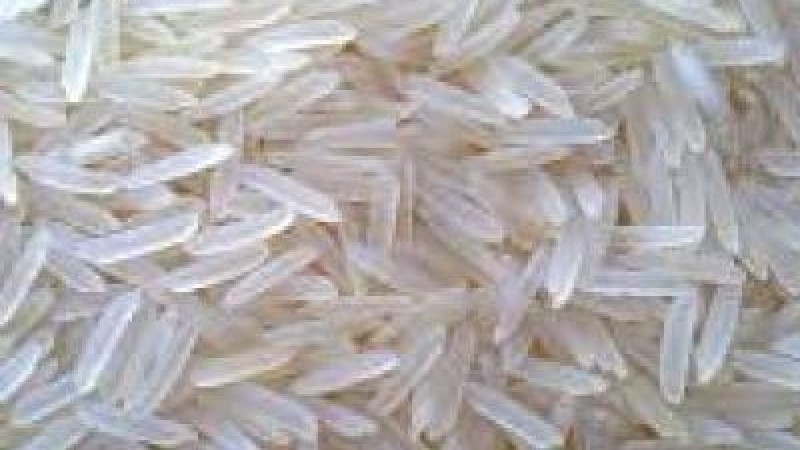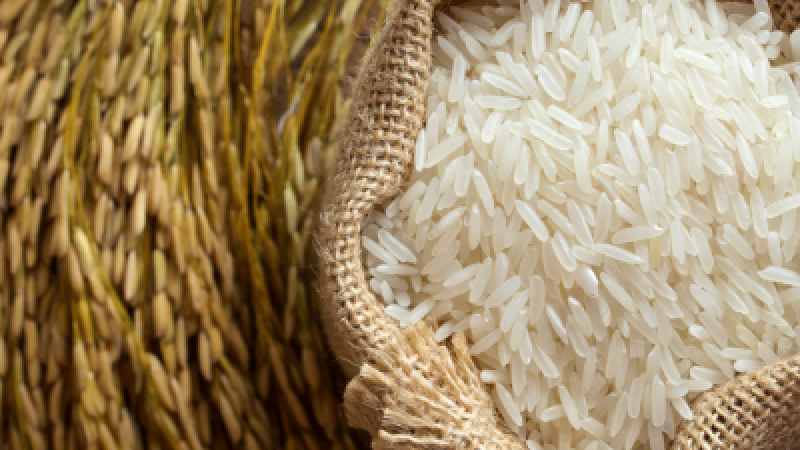Rice: There are whispers in the market that Iranian buyers are yet to pay
August 31, 2017 at 12:24 PM ,
Rainbow Exports

There is now the risk of non-payment/delayed payment/outright loss against large volumes of basmati rice shipped to Iran. There are whispers in the market that Iranian buyers are yet to pay for 125000 tonnes of rice—valued at nearly US$136.7 million—that had been shipped out in 6,000 containers a few months back. Small- and medium-sized exporters had entered into contracts with Iranian buyers for rice priced at US$1040 to 1100 per tonne—with the average value almost 25% higher than those realised in 2016-17. Reportedly, the Iranian rice market has crashed and buyers have reneged on the contract price. But after protracted negotiations, cargoes are being accepted at a discounted value of around US$690 to 785/tonne—which effectively means a price cut of about 30%, or an outright loss of US$40.62 million.
Even then, the payment is being offered on a deferred basis, against future purchases by inflating invoice values. This is as per mutual convenience. However, such settlement may vary depending on the understanding between the parties. The result of non-payment/loss at such scale is that payments to farmers for the paddy could also get delayed. Suppliers of PP bags, transporters and handling agents at the port may also remain unpaid. Since exporters generally avail pre-shipment credit from banks, ultimately, banks are exposed to the risk of non-payment—that may worsen the bad loan count. Iran has a regular requirement of Indian Pusa 1121 (parboiled) basmati rice, varying between 0.7 million tonnes (mt) to 1 million mt annually depending upon its domestic output. Value-wise, Indian shipment to Iran touched $1.8 billion in FY14, but was down, at $0.57 billion, in FY17. India ships out about 4 mt of such rice in to international markets annually without any serious payment problems.
It is not the first time that shippers have had to face delayed-/non-payment by Iranian buyers. There have been defaults/short payments in past as well. There has been frequent recurrence of such non-payment, wherein sellers have either suffered a total loss or loss of profit. Even soyabean meal cargoes in the past have met a similar fate. It is immaterial whether the buyer is a private party or an entity run by the government of Iran.
The distinctive feature of this trend is that the same Iranian buyers often front new companies as purchasers, while Indian counter-parties conclude rice contracts at seemingly advantageous prices. Once the shipment is made, shipping documents are forwarded usually on DP (documents to be delivered to buyer by the bank against payment) or other terms, but seldom against letters of credit.
Iranian buyers dither in making payments through banking channels; shipping documents are allowed to stagnate in Iranian banks or are declared deficient while rice is not lifted from the destination port. With the stalemate on payment and fear of cargo going bad, sellers rush to Iran to settle the matter—resulting in the Iranians forcing discounts or settlement at arbitrary terms. At a time when the government is focusing on farm income growth, it is important that this issue is resolved once and for all. The Agricultural and Processed Food Products Export Development Authority (Apeda) is the India’s controlling body for export of basmati rice. Allowing open and free exports of rice to Iran must be reviewed, and such exports need to be secured with suitable restrictions.
Put simply, this could be enforced through a "canalised payment mechanism” via an authorised agency like APEDA. A possible procedural format for this could be as follows: An exporter/seller may sign a contract with an Iranian buyer with the stipulation of 100% advance payment to be made to Apeda within 7-10 days of the contract signing. The date of receipt of payment by Apeda could be treated as the effective date of contract. Apeda then notifies this date to both the seller and buyer; custom may clear cargo offered by seller for shipment after receipt of written acknowledgement from Apeda of payment having been received from Iran. The buyer can nominate its inspection agency with the condition that inspection at loading port being deemed final.
Apeda should effect payment to the seller after receipt of shipping documents that require compliance—as agreed in the contract—and issue a "no objection certificate” to the bank of the seller so that foreign exchange earnings accrue to the seller/shipper. In case the seller defaults in making shipment, Apeda should remit the funds back to the buyer at the cost of seller, including any difference in the rate of exchange, and it shall not be liable for any quality/quantity/delayed shipment claims whatsoever. Apeda/the directorate general of foreign trade will also list buyers who have earlier reneged on commitments, as also the brand names of the rice they sell in the Iranian market, and maintain an abeyance list for them.
The government can also nominate another trading PSU for the said purpose if Apeda is not willing to undertake this activity. Such a payment security system should be tried for at least two years, and depending upon its efficacy, can be reviewed thereafter. Exports without receipt of full payment retard economic activity. When a suitable security mechanism is introduced and fake importers are filtered out, buyers with respectable credentials and financial capabilities will trade with Indian counter parties. Exports will be truly rewarding when transactions are considered clean and above board and probability of dispute.
Effect of the above is that it will not let the prices to move up. It will only lead to have market down in the coming days.
(Source: Basmati Rice Industry)






